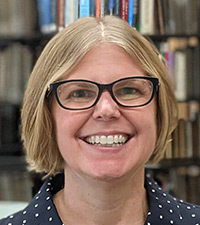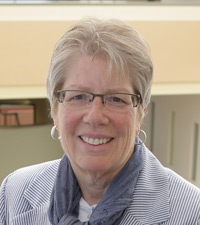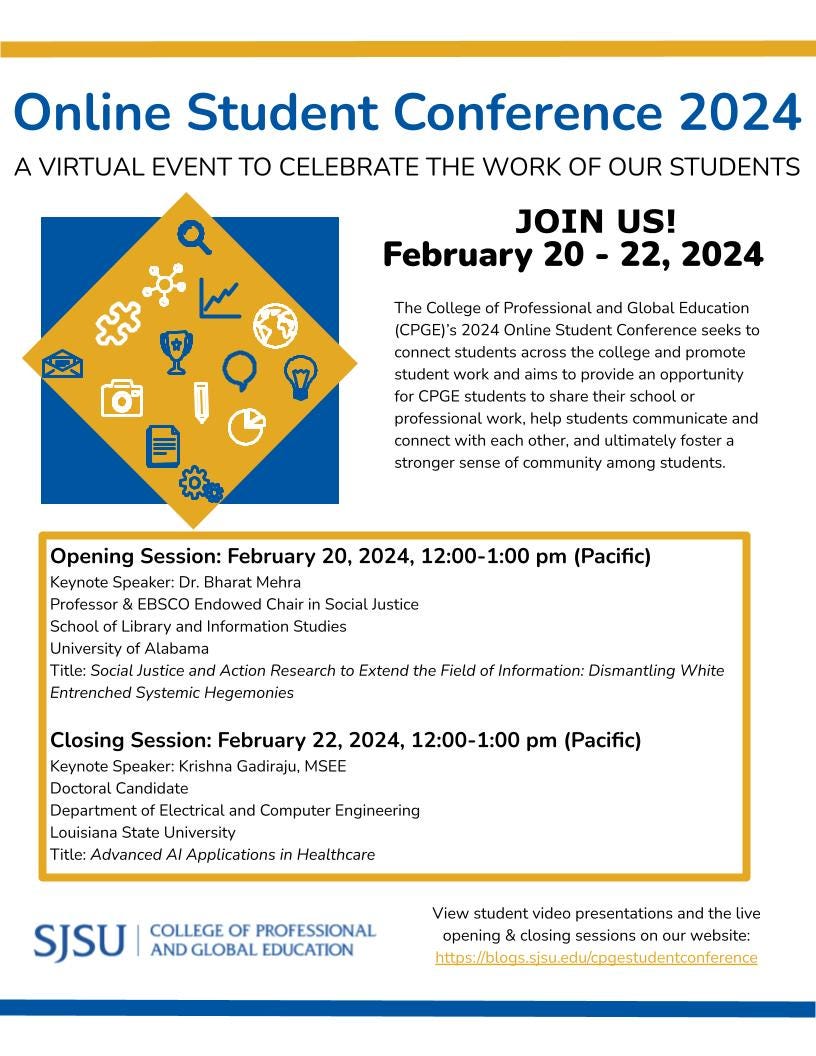The Student Research Journal is always accepting submissions for book reviews and we actively curate a list of recommended books each year. One of our 2024 picks is Cases on Establishing Effective Collaborations in Academic Libraries, which presents case studies on effective collaborations in different settings with different goals, dynamics, and budgets in order to highlight the role of the academic library in creating effective partnerships and collaborations within academia and beyond. We recently had the opportunity to talk with authors Mary Piorun and Regina Fisher Raboin!

Mary Piorun (MP), PhD, is the Director of the Lamar Soutter Library and the Network of National Library of Medicine, Region 7 at the University of Massachusetts Chan Medical School (UMass Chan). Mary is a member of the Medical Library Association, the American Library Association, and the Association of College and Research Libraries. Her interests include library administration, leadership and management, strategic planning, grant oversight, program planning, implementation and evaluation, project coordination.

Regina Fisher Raboin (RR), MSLIS, is the Associate Director at the Lamar Soutter Library, University of Massachusetts Chan Medical School (UMass Chan). She is active in many associations and groups including the Medical Library Association’s (MLA) Leadership and Management Caucus, the Association of Academic Health Sciences Libraries and the Boston Library Consortium’s (BLC) Associate University Librarians (AUL) group. She also contributes to the MLA’s weekly blog. Her interests include leadership and management, strategic planning, staff professional development, scholarly publishing/communication, research data management, education and outreach services, humanities in medicine, bioethics.
How did you start your career in library and information science?
MP: I attended library school after working in bookstores for a few years. I started in a two-person corporate library as a reference librarian, and then took a position with the federal government as a systems librarian. From there I moved to UMass Med as a systems librarian and have worked in various positions over the last 25 years – the last seven as library director.
RR: This was a career change for me. After working as an animal research lab technician and then coordinating and teaching biology labs at a community college, I left to have a family. Once the children were grown, I realized that I enjoyed the finding, synthesizing, and organizing of information, and especially assisting people with their literature searching. So I began library and information science school in my late 30’s and started my new career as a science research librarian at a university at age 40. After 20 years at that university, I moved to UMass Chan Medical School as the Associate Director for the Lamar Soutter Library. I have been here since 2015.
As Director and Associate Director and as members of numerous groups, you both have extensive experience collaborating and partnering within academia and your community; what have you learned from these experiences?
MP: I learned to start small to strengthen the relationship and see how each other works. It’s important to be clear about what skills you bring to the collaboration and in what instances you need to learn something new. It’s also critical to make sure that the goals are stated and that each party benefits from the collaboration.
RR: I learned that to have successful collaborations, listening for understanding, identifying shared values and goals, and transparent discussion and exchange of information are important to build a community of trust, acceptance, and equity.
Why is forming effective collaborations in academic libraries so important?
MP: Through collaboration you can expand your reach, achieve goals that you can not achieve on your own, and in many ways move the organization forward. It is also important to help other organizations/individuals succeed.
RR:(My answer is similar to Mary’s above.) Forming collaborations within the academic community is important for realizing and building shared goals. Helping individuals grow and realize their personal and professional goals helps the organization in reaching its strategic priorities.
What are some barriers to collaboration?
MP: No vision, misaligned goals, poor communication, withholding information.
RR: No transparency, lack of trust, poor to no communication, not celebrating individuals or organizational accomplishments, not recognizing the importance of embracing diversity, equity, and inclusion (embracing DEO leads to a stronger, collaborative, and more innovative organizational environment), doing nothing when action needs to be taken.
Cases on Establishing Effective Collaborations in Academic Libraries covers a variety of topics; which areas are seeing the most new research?
MP: I think it is hard to move from the “we did this great thing” into the research realm, unless it is planned out from the beginning. I would like to see more research done in the area of collaboration. In general I would say that libraries are partnering with non-traditional groups/organizations. I would love to see those partnerships mined for best practices.
RR: In my opinion I feel research into how Artificial Intelligence will change how academic libraries collaborate within their institutions and with outside organizations will be an area with new, and I’m sure, controversial research and initiatives.
Is there a case study included in Cases on Establishing Effective Collaborations in Academic Libraries that you’d like to highlight?
MP: I liked the Nichols article on meeting students where they are. I thought that case highlighted an instance where the librarians were leaving the library and going to their user’s spaces. I thought it showed innovation and courage to try something new.
RR: I’m partial to the Mack, et al Lighting Up Community Collaboration Through Academic Libraries chapter. This case study focuses on a specific issue: creating pathways to college for underrepresented students and careers in STEM. This collaboration was built between the academic institution’s libraries, local high schools, and programs for underrepresented children.The case study provides guidance and recommended practices for academic libraries considering community partnerships.
What words of advice do you have for MLIS students?
MP: It’s important to learn the soft skills along with the new knowledge. Take every opportunity you have to develop those skills as well – communicating, managing, organizing, making others feel valued.
RR: I would agree with Mary’s answer: honing and developing soft skills is the most important education you can give to yourself. Developing and enhancing these skills will enable you to communicate, collaborate, interact, and build relationships more effectively. Actively listening to others for understanding and knowledge will show that you value them and their skills and want to collaborate in order to build critical partnerships.
Recognizing and embracing diversity will provide pathways to strong, evolving partnerships.
Leadership comes from all positions in an organization, and successfully developing soft skills conveys that you, as a leader and collaborator, recognize the importance of people and their well-being in an organization.
Thank you to Dr. Piorun and Ms. Fisher Raboin for taking the time to answer our questions and share about the importance of collaboration and partnership within academic libraries. The Student Research Journal is always accepting book review submissions and we think Cases on Establishing Effective Collaborations in Academic Libraries would be a great pick!
You can learn more about Cases on Establishing Effective Collaborations in Academic Libraries here. Read the full text via the King Library here.
Want to submit to the SRJ?
If you would like to cover this title or have a book that you think fits the Scope of our journal, please email the SRJ at sjsu.ischool.srj@gmail.com and include [Book Reviews] in the subject line of your message. We look forward to hearing from you!







 Boheme
Boheme


